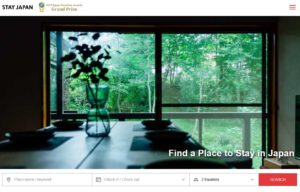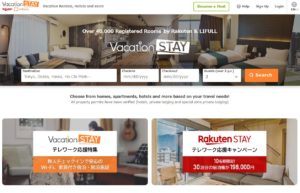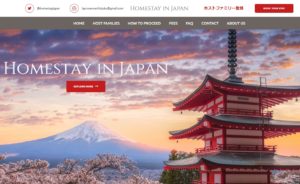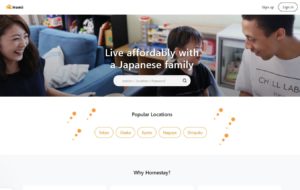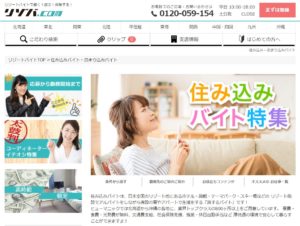Depending on how long you plan to stay in Japan, the way you stay/live will change. If you have permanent residency and you’re going to live in Japan permanently, you’ll probably think about buying a house.
On the other hand, those who are staying in Japan for the following purposes, they will need accommodation for staying an extended period of time and will be searching for it with the word “long term stay accommodation”.
- Those who go on a business trip to Japan, and stay in one city for a long time
- Those who visit Japan for tourist purposes, and stay in one city for a long time
- Those who visit Japan to meet a friend, and stay in one city for a long time
- Those who go back to your family home (JIKKA) and stay for a while but there is no space to stay in your home
- Those who study abroad Japan to learn Japanese, and take a JLPT (Japanese Language Proficiency Test) examination course
- Those who plan to move to Japan to live in permanently, so need to stay for house hunting for a couple of weeks
- Those who want to purchase a property (real estate) in Japan for investment, so need to stay for a few weeks
- Those who want to get a working visa and work in Japan, so need to have an interview
- Those who want to take a health checkup (medical check-up, physical exams) or have an operation in Japan, so need to stay about a month
- Those who have a working holiday visa, and stay in some cities for sightseeing and working
Otherwise, there should be the persons who want to stay in Japan for the following purposes, they will need a rental apartment in order to stay for a couple of months or more and will be searching for it with the word “short stay apartment” or “short-stay housing”.
- Those who work in Japan for an internship, and then need to stay in a few months in the same city.
- Those who have a student visa and attend a college for 4 years
- Those who study abroad in Japan to learn Japanese, and attend a Japanese language school for a year
- Those who live in countries outside of Japan, but temporarily need to stay in Japan for a while for nurturing a parent.
- Those who have a working visa and stay in Japan for a few years or more.
(e.g. university professor, artists, monks, journalists, physicians, teachers, IT engineers, care worker, musicians, actors, singers, dancers, sportspeople, chefs, animal trainers, sports trainers)
- 1 For sale – For those who are going to live in Japan permanently
- 1.0.1 分譲マンション[BUNJO MANSHON]:
- 1.0.2 一軒家[IKKENYA]=戸建て[KODATE]:
- 1.0.3 土地 [TOCHI]
- 1.0.4 注文住宅 [CHUMON JYUTAKU]:
- 1.0.5 建売住宅[TATEURI JYUTAKU]:
- 1.0.6 売建住宅 [URITATE JYUTAKU]:
- 1.0.7 Comparison “A newly built condominium” and “A second-hand apartment”
- 1.0.8 Comparison ” Custom-Built house” and “TATEURI JYUTAKU” and “URITATE JYUTAKU”
- 2 For rent – For those who are going to live in Japan temporarily
For sale – For those who are going to live in Japan permanently
分譲マンション[BUNJO MANSHON]:
Condominium, 3-4 LDK type is being marketed to families. Some owners purchase a 1K or 1LDK condominium for investment objective to rent it out for a couple or single person. Owning a parcel of condominiums is called 区分所有 [KUBUN SHOYU].
*新築マンション[SHINCHIKU MANSHON]: Newly built condominium, the developer starts to sell them before the building has been completed.
*中古マンション[CHUKO MANSHON]: A second-hand apartment, a second-hand flat
一軒家[IKKENYA]=戸建て[KODATE]:
Detached house, Single-house. To build a house, of course, you have to need land. Foreigners can buy land in Japan. There are no restrictions on owning land in Japan. Actually, due to the upcoming 2020 Tokyo Olympics, foreigners who want to buy property in Japan are increasing
土地 [TOCHI]
To have land to build a house, there are two types of rights in Japan. One is 所有権 [SHOYU KEN] “Freehold”, and another one is 借地権 [SHAKUCHI KEN]“Leasehold”. In most cases, Japanese people buy land with freehold, they pay for 固定資産税 [KOTEI SHISAN ZEI]”property tax”. Those who have land with leasehold pay 借地料 [SHAKUCHI RYO] “ground rent” for a landowner.
注文住宅 [CHUMON JYUTAKU]:
Custom-Built House, Made-to-Order House. You have to own the land first and order a custom-built house by a housebuilder.
建売住宅[TATEURI JYUTAKU]:
A single-house built on a subdivision housing and sold together with the site. A purchaser buys a house with the site.
売建住宅 [URITATE JYUTAKU]:
A single-house built as a subdivision housing by a developer. When subdividing a developed lot, the purchaser of the lot simultaneously orders the subdivider (developer) to build a house on the lot. *建築条件付きの土地 [KENCHIKU JOKEN TSUKI NO TOCHI]: Developed subdivisions with a requirement to build on the land
Comparison “A newly built condominium” and “A second-hand apartment”
| 新築マンション[SHINCHIKU MANSION]: A newly built condominium | ||
| Good point(s) |
|
|
| Bad point(s) |
|
|
| 中古マンション[CHUKO MANSION]: A second-hand apartment | ||
| Good point(s) |
|
|
| Bad point(s) |
|
|
Comparison ” Custom-Built house” and “TATEURI JYUTAKU” and “URITATE JYUTAKU”
| 注文住宅 [CHUMON JYUTAKU]: Custom-Built House | ||
| Good point(s) |
|
|
| Bad point(s) |
|
|
| 建売住宅[TATEURI JYUTAKU] | ||
| Good point(s) |
|
|
| Bad point(s) |
|
|
| 売建住宅 [URITATE JYUTAKU] | ||
| Good point(s) |
|
|
| Bad point(s) |
|
|
For rent – For those who are going to live in Japan temporarily
Leasehold estate like apartments or a detached house are usually rented through real estate agents. Here in Japan contacting landlords directly is no common. On renting a house or apartment, please keep these things in mind.
- You should be able to find Real estate offices that show the listings of available apartments in their show windows in the area you want to stay. They have their own site as well and update available apartments that they can deal with. But unfortunately, most of the conventional real estate companies don’t have an English speaking staff, and staffs are not very foreigner-friendly.
- What’s more, most landlords or real estate agencies are naturally reluctant to rent their apartments to foreigners who can not speak Japanese. It could happen that you will be refused for renting categorically to avoid frictions.
- In the normal leasing contract, the period of a leasing contract is 2 years. It does not mean that you can not terminate the leasing contract for less than 2 years. In most of the cases, the lessee can terminate it by noticing 1 month before. However, you should check the contractual clause about the penalty in the event the lessee terminates the leasing contract for less than 2 years.
- Regardless of that the landlord and real estate agents recognize that many foreigners stay in Japan for less than 2 years, they think that they want to rent their property to a normal Japanese because they will stay longer periods. That’s another reason why most landlords or real estate agencies are naturally reluctant to deal with a foreigner.
- You also have to submit the documents such as Passport, residency card, proof of earnings, employment certificate, student registration certificate, etc. If you have a guarantor, the guarantor also has to be submitted the proof of earnings. This guarantor usually must be a Japanese national with a stable financial background. If you can not find a Japanese guarantor, you will be advised to pay a guarantee fee for a guarantee company.
- Besides, please be noted that renting a property through real estate agency would cost initial fee additionally such as the amount of the security deposit, key money, etc.,
- Please remember that rent is not included utilities. You need to contact each company to start the utilities including internet service providers.
- You also have to purchase furniture, appliances, curtain, and utensils, etc.,
| Feature | Lease Contract / Period of the lease contract Either 普通借家契約 [FUTSU SHAKKA KEIYAKU]: A regular lease contract or 定期借家契約 [TEIKI SHAKKA KEIYAKU]: Fixed-term lease contract |
||
| 賃貸マンション[CHINTAI MANSHON] | Rental apartment, relatively larger than アパート[APARTO], it should be reinforced concrete structure with an elevator. It’s not the same meaning of mansion in English. | 普通借家契約 [FUTSU SHAKKA KEIYAKU]: A regular lease contract ( Normally 2 years ) |
|
| 定期借家契約 [TEIKI SHAKKA KEIYAKU]: Fixed-term lease contract ( In most cases1 year ~ 2 years. Very few of them in existence. ) |
|||
| 賃貸アパート[CHINTAI APARTO]
=ハイツ [HGHITS] |
Most of them are two-story wooden structures. Cheaper than MANSION. | 普通借家契約 [FUTSU SHAKKA KEIYAKU]: A regular lease contract ( Normally 2 years ) |
|
| 定期借家契約 [TEIKI SHAKKA KEIYAKU]: Fixed-term lease contract ( In most cases1 year ~ 2 years. Very few of them in existence. ) |
|||
| 分譲賃[BUNJO CHIN] | Some owners purchase a condominium for investment objective rent it out. It is called 分譲賃[BUNJO CHIN]. Otherwise, those who purchase a condominium to live in by themselves rent it out because they have to move into another place due to a job transfer. | 普通借家契約 [FUTSU SHAKKA KEIYAKU]: A regular lease contract ( Normally 2 years ) |
|
| 定期借家契約 [TEIKI SHAKKA KEIYAKU]: Fixed-term lease contract ( In most cases1 year ~ 2 years. Very few of them in existence. ) |
|||
| 戸建て賃貸 [KODTE CHINTAI] | To rent a single-house. In case that the owner is renting it out temporarily, the lease contract should be Fixed-term lease contract. You may be able to have a pet. | 普通借家契約 [FUTSU SHAKKA KEIYAKU]: A regular lease contract ( Normally 2 years ) |
|
| 定期借家契約 [TEIKI SHAKKA KEIYAKU]: Fixed-term lease contract (The number of years varies depending on the conditions. Very few of them in existence.) |
|||
For rent – for those who want to stay in Japan for a short period [1 month ~ less 1 year]
As mentioned above renting an apartment would be involved high setup cost, contracting your own utilities, paperwork (leasing contract), a high Japanese requirement as well as some patience (specifically with regard to the ease of acceptance of foreign tenants by some landlords – every experience differs though). It would not be apparently suitable for short-stay foreigners. Those who want to stay in Japan only for a short period such as 1 month to 3 months in the same city, We recommend that you consider the following options to stay;
シェアハウス [SHARE HOUSE]:
Shared house, shared residence. Provide a combination of private rooms for residents, with shared communal facilities. With lower initial costs than a rental apartment. Shared areas include kitchens, shower rooms, and bathrooms, as well as social spaces like lounges.
| Pro(s) | Con(s) | Lease Contract / Period of the lease contract |
|
|
定期借家契約 [TEIKI SHAKKA KEIYAKU]: Fixed-term lease contract (A minimum staying the duration of 1 month.)If you enter into a lease contract for more than 1 year, it could be a regular lease contract. But if it is less than 1 year, it should be a fixed-term lease contract. |
マンスリーマンション[MONTHLY MANSION]:
Monthly apartment rented by the month. Monthly apartment rented by the month. It should be furnished, it is designed for business persons.
| Pro(s) | Con(s) | Lease Contract / Period of the lease contract |
|
|
定期借家契約 [TEIKI SHAKKA KEIYAKU]: Fixed-term lease contract (A minimum staying the duration of 1 month.) |
ファーニシュド アパートメント[FURNISHED APARTMENT]:
Monthly apartment rented by the month. Japanese business persons are not familiar with the name Furnished Apartment. They will search for it with the word “Monthly Mansion”. However, some management companies offer apartments with the furniture as a furnished apartment on the English website. They are focussing on foreigners. Actually, the properties selling as a furnished apartment should be the same as Monthly Mansion.
| Pro(s) | Con(s) | Lease Contract |
| It’s the same as Monthly Apartment. But if you search with the word “Furnished Apartment” in English and apply for a property on the English website, you will get service in English. | It’s the same as Monthly Apartment. | 定期借家契約 [TEIKI SHAKKA KEIYAKU]: Fixed-term lease contract (A minimum staying the duration of 1 month.) |
サービスアパートメント[SERVICE APARTMENT]:
Serviced apartments are equipped with furniture, a kitchen, and appliances such as a washing machine, refrigerator, and TV, etc., which are not usually provided in hotels. In most cases, cooking utensils, rice cookers, microwave, and oven are also included in the kitchen. Not as much as in hotels, but there is a room cleaning service. The minimum period to stay is 1 month. Usually, it is used by employees of larger corporations or businesses.
| Pro(s) | Con(s) | Lease Contract |
|
|
定期借家契約 [TEIKI SHAKKA KEIYAKU]: Fixed-term lease contract (A minimum staying the duration of 1 month.) |
Intermediate between For rent and Accommodation [A week ~ less than 1 month]
ウィークリーマンション[WEEKLY MANSION]:
Weekly apartment rented by the week. Weekly apartment rented by the week. It should be furnished, it is designed for business persons.
| Pro(s) | Con(s) | Minumum of stay : 1 week |
|
|
Note: To offer a per night room rate, and provide bedding, a license for accommodation is required. But the management company operating Weekly Mansion does not secure a license for accommodation called 旅館営業許可 [RYOKAN EIGYO KYOKA]. Therefore they make a super short lease contract of only a week, which will be fixed-term lease contract. |
民泊 [MINPAKU]:
Vacation rental, Bed & Breakfast. Renting out a room in a detached house or apartment to provide lodging services to travelers and business travelers. It has got easier for even an individual owner to start the accommodation business without getting an accommodation license. You can make a booking through Airbnb , Vrbo [Expedia Group] , Vacation Stay [Rakuten Group] or STAY JAPAN
| Pro(s) | Con(s) | Minumum of stay |
|
|
住宅宿泊事業法 [JYUTAKU SYUKUHAKU JIGYOU HOU]: 1 night
国家戦略特区法 [KOKKA SENRYAKU TOKKU HOU]: 2 nights (It differs depending on the district.)
|
A new law 住宅宿泊事業法 [JYUTAKU SYUKUHAKU JIGYOU HOU] regulating private lodging businesses took effect in 2018 to cope with a shortage of accommodations amid a growing number of foreign tourists. The law allows anyone to lease their rooms for up to 180 days a year if they register with their local government in advance. Before starting this law, many individual owners had rented out their house or apartment illegally.
国家戦略特区法 [KOKKA SENRYAKU TOKKU HOU]took effort in 2013. According to this law, foreign tourists will be allowed to stay in the National Strategic Special Zone for a period of time (3 to 10 days) specified by ordinance based on a lease contract. Ohta Ward of Tokyo Pref., Osaka Pref. Osaka City, Kita-Kyusyu City of Fukuoka Pref. Niigata City, Chiba City are assigned to National Strategic Special Zone.
Accommodations – [ from 1 night ~ ]
ビジネスホテル[BUSINESS HOTEL]:
Hotel for a business person. There are lots of chain hotels such as APA Hotel, Toyoko Inns, Super hotel, Daiwa Roynet Hotels, Tokyu Hotels, dormy inn, Hearton Hotel, mystays, rootinn hotels, etc. They mostly don’t serve dinner, but breakfast.
ゲストハウス[GUEST HOUSE]=ホステル[HOSTEL]:
Accommodation type guesthouse can stay from one night, but sometimes there are some of the residential type guesthouses that can be stayed from 1 month, which is almost the same as a shared house. Youth Hostel belongs to Japan Youth Hostels(a member of the International Youth Hostel Federation) relatively larger than other hostels and located an inconvenient place. Guesthouse often is run by an individual person, relatively smaller than the hostel.
旅館[Ryokan]:
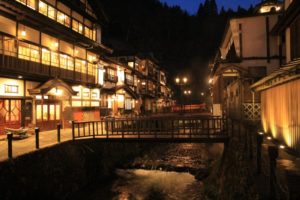
民宿[Minsyuku]:
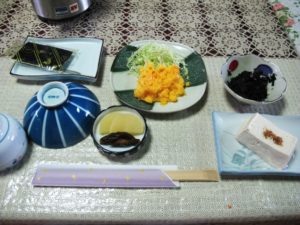
町家一棟貸し[MACHIYA ITTOU GASHI]:
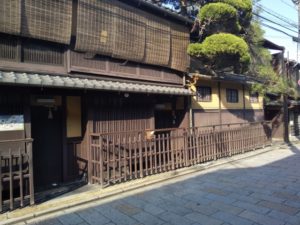
カプセルホテル[CAPSULE HOTEL]:
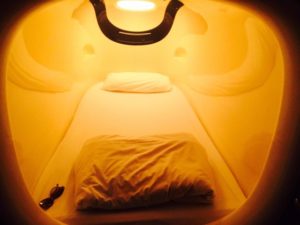
民泊[MINPAKU]:
Vacation rentals by owner, newly categorized accommodation style regally so that local people can easily start a vacation rental business. It has to be given permission from the public health center. But paperwork is much easier than normal accommodation businesses such as a hotel, ryokan or hostel. And initial investment should be also much cheaper than them. You can search for this type of accommodation by Booking.com or Air B&B.
– STAY JAPAN is an accommodation searching site specialized in a farm stay, which is called 農家民泊 [NOUKA MINPAKU]
– VACATION STAY is an accommodation searching site including many Minpaku properties. Especially a number of resort properties are listed on the site.
宿坊[SYUKUBO]:
Temple Lodgings, you can spend the night at some Buddhist temple lodgings. A stay often includes two vegetarian meals. You may have the opportunity to join the morning prayers. The most popular place is Mt. Koya.
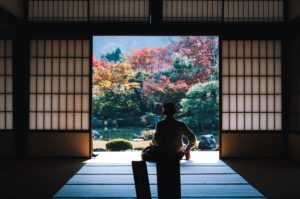
マンガ喫茶[MANGA KISSA]=インターネットカフェ[INTERNET CAFE]:

ラブホテル[LOVE HOTEL]:
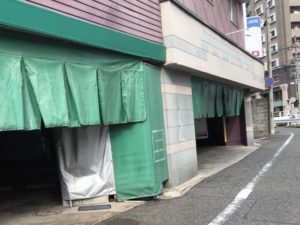
キャンプ [CAMP]:
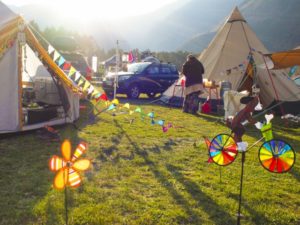
Other styles of staying in Japan
ホームステイ[HOME STAY]:
Homestay would be a great way to experience the Japanese lifestyle and a budget stay in Japan. There are some websites dedicated to matching travelers with households looking to host. And while homestays are often thought of as an option for students and young people Regardless of your age, there are plenty of hosts who are happy to let you stay.
How to stay for free in Japan
カウチサーフィン[COUCH SURFING]:
CouchSurfing is a service that allows travelers to stay in the homes of local hosts for free.
As a guest, travelers can find a local host who will let the guest stay for free, and the host will enjoy interacting with the traveler and let the guest stay in an empty room or couch in his or her home for free. To put it simply, this is a service to find people who will let you stay with them during your trip.
Although CouchSurfing is unfamiliar in Japan, it has become quite popular in the United States and Europe as a new way to travel, with more than 4 million users worldwide each year.
住み込みバイト [SUMIKOMI BAITO]
フリアコ[FURI ACO]:
Abbreviation for “Free Accommodation”, Industry-specific terminology of Guesthouse or Hostel in Japan. As the hostel or guesthouse owners want to maintain the labor costs as low as possible, they provide a vacant bed or room for free to foreigners who have a working holiday visa. Foreigners who are allowed to stay for free will work without compensation as a cleaner etc, to exchange the labor and accommodation fees.
Please be noted that foreigners with a tourist visa are not allowed to work in Japan even if you are not getting paid at all. The Japanese government (The immigration authorities) interpret the job as a way to get paid money, which is exchanged into accommodation fees.
ルームシェア[ROOM SHARE]:
It’s the option to live with your friend together. Even if you share the rent, one of them has to be a lessee on the lease contract and has responsibility for paying a full amount of rent to a landlord. When you search for an apartment, you should make a declaration to an agent in advance that you want to share the room. Some landlords do not approve of it.
居候[ISOUROU]=間借り[MAGARI]:
Renting an empty room at a friend’s or acquaintance’s house for free to live in. If you are allowed to live in the house for free, generally speaking, you would better do household chores like cooking, laundry, and cleaning!


